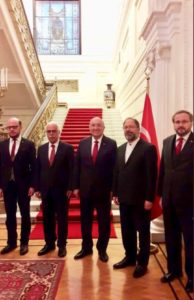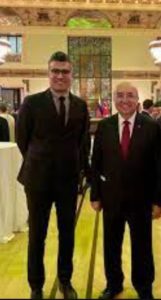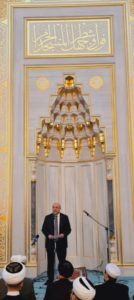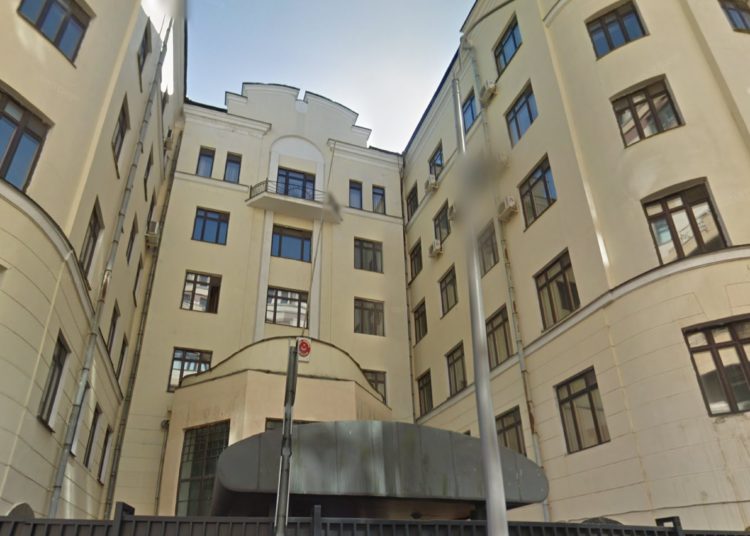Abdullah Bozkurt/Stockholm
Turkish Embassy diplomats in Moscow have launched a lobbying campaign to shore up support for a jailed Turkish government imam who was convicted of child molestation by a Russian federal court.
Hüseyin Özdoğan, a 56-year-old imam who was sent to Russia by the Turkish government, was convicted by a Russian federal court on September 1, 2009 and sent to serve his sentence in a prison located in the town of Sosnovka in the Zubovo-Polyansky district of the Republic of Mordovia.
Özdoğan was indicted for sexually molesting three children, one under the age of 16 and two under the age of 14, on various dates in 2007. The father of the children and the victims came forward to testify against him during his trial even though Özdoğan denied the charges.
The court ruled to convict him and sentenced him to serve 15 years in prison colony no. 7 in Sosnovka.
Full text of Russian federal court decision in the conviction of Turkish imam Hüseyin Özdoğan on child molestation charges:
Nordic Monitor has learned that two diplomats at the Turkish Embassy, identified as Mehmet Yerlikaya, a legal counselor, and Ömer Faruk Savuran, a religious counselor, have been spearheading a campaign to free the jailed imam. Savuran runs religious proselyting efforts on behalf of Turkey’s Religious Affairs Directorate (Diyanet), the government arm that promotes the political islamist ideology of President Recep Tayyip Erdoğan. He was deputy head of the Diyanet department responsible for Eurasian countries before his appointment to the Turkish Embassy in Moscow in 2020.

In order to shore up support for the imam, diplomats have contacted leading figures in the local Muslim community where the prison is located and asked them to endorse Özdoğan for a leadership role in the prison’s Muslim population. The diplomats also talked to family members of inmates in the region, hoping to expand the support base for the jailed imam.
The Turkish Embassy also promised to fund a new mosque at the prison in exchange for securing an official leadership role for the imam. Diplomats hope that the community support and an official role at the prison will help Özdoğan’s case and possibly lead to an early release.
The campaign drew the ire of locals, according to Russian news agency Regnum, which published an article on November 10, 2021 accusing Turkish diplomats of communicating with inmates outside official channels. The agency claimed the Turkish Embassy has been trying to influence Muslim inmates and risks creating instability in the prison administration.
The Erdoğan government has raised the status of the Diyanet in recent years and increased its funding, with Turkish intelligence agency MIT working with imams assigned abroad to gather information and collect intelligence. As an enormous government entity, the Diyanet has a budget exceeding that of other government ministries by a large margin, employs more than 100,000 people and controls 87,000 mosques in Turkey and abroad.

The Diyanet is an ideological and political state apparatus tasked with spreading President Erdoğan’s political Islamist ideology both inside and outside the country. Under Erdoğan’s rule the Diyanet’s remit and range of activities have expanded, and it has become an important tool in Turkish foreign policy.
In recent years, European governments have increased their scrutiny of Diyanet imams. In December 2016 Turkey had to recall Yusuf Acar, the religious affairs attaché at the Turkish Embassy in The Hague, after Dutch authorities accused him of gathering intelligence on the Gülen movement, a group critical of the Turkish government. Similarly, Belgian authorities rejected the visa applications of 12 Turkish imams seeking to work in the country in 2017.

The government of the central German state of Hessen ended its cooperation with the Turkish-Islamic Union for Religious Affairs (Diyanet İşleri Türk İslam Birliği, or DITIB). “The doubts about the fundamental independence of DITIB from the Turkish government could not be resolved,” said Minister of Culture Alexander Lorz. DITIB, the German branch of the Diyanet and the religious arm of Erdoğan’s Islamist regime, controls imams sent by the Turkish government to European countries.














